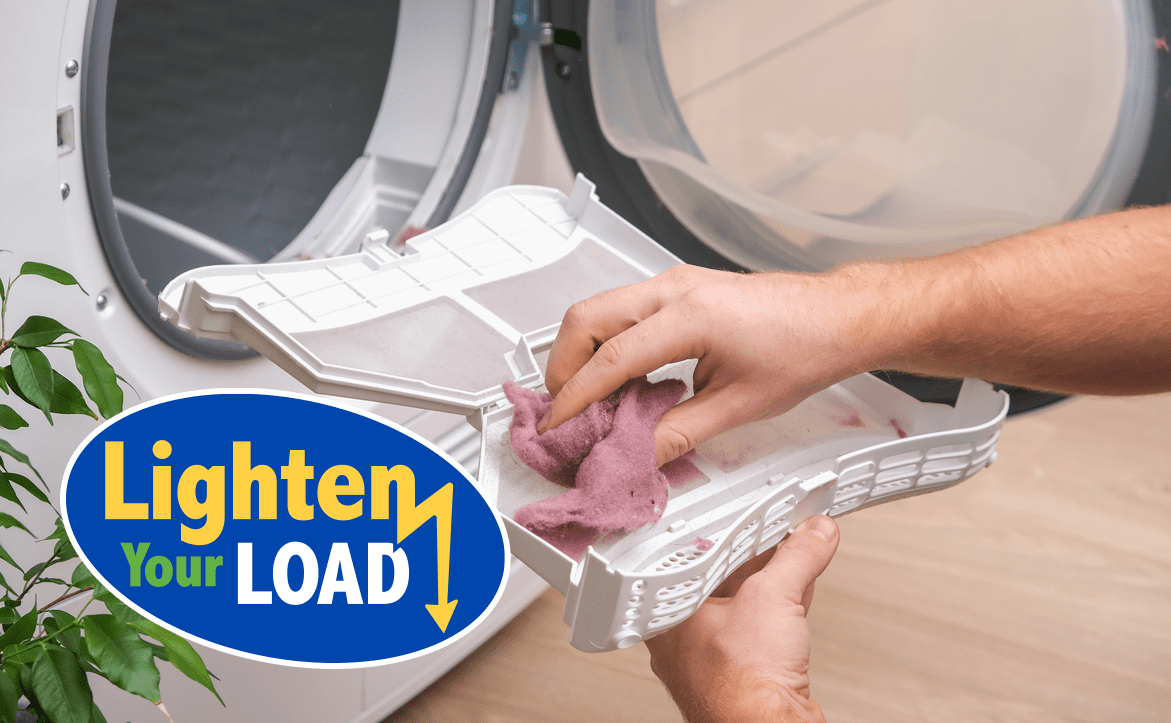
Are you a renter looking for ways to lower your electricity bill without making significant changes to your living space? While owning a home can offer more flexibility in making efficiency improvements, renters still have options to stay comfortable and reduce energy costs. With spring (hopefully) around the corner, now is a good time to try some spring cleaning and weatherization techniques. These can lead to savings on your utility bill and create a healthier home environment.
So, here are six practical tips to help renters lighten their load and save money.
1. Deep clean your home.
Start by giving your place a thorough cleaning. Dust, vacuum, mop floors, wipe down surfaces, and clean appliances. These are essential tasks to tackle. Pay particular attention to clutter and filters.
- Declutter and organize. Clutter creates visual chaos and impedes airflow. Declutter your living spaces by donating or disposing of items that you no longer need. Storage solutions like baskets and under-bed organizers can maximize space and improve airflow.
- Check and replace filters. Although renters may not have control over the HVAC system, you can still check and replace air filters regularly. This will ensure optimal performance. If needed, contact your landlord or property manager to request filter replacements and schedule maintenance.
2. Seal air leaks.
While cleaning, you might notice areas where doors or windows don’t have a good seal. Seal these air leaks with inexpensive weather-stripping or caulking. Be sure to get permission from your landlord before making any permanent alterations! Temporary solutions like draft stoppers or plastic window film can improve energy efficiency without causing damage. Here are some more ideas:
- Check for holes or cracks in and around your walls, ceilings, windows, doors, fixtures, switches, and electrical outlets. Seal these leaks with foam caulk or weather-stripping.
- For a no-cost fix, roll up a towel and place it against the bottom of a door or window.
- Close fireplace dampers when not in use to stop air leaking through the flue.
- Weather strip or temporarily seal access doors or hatches leading to unheated upper floors or attics.
3. Use window treatments.
Installing energy-efficient window treatments can help renters regulate indoor temperatures and reduce heating and cooling costs. These include items such as thermal curtains or cellular shades. These types of window coverings provide insulation and block out heat in the summer while retaining warmth in the winter.
4. Cut standby power consumption.
Standby power consumption is also known as phantom energy usage. It can contribute to higher electricity bills without you even realizing it. Unplugging chargers and devices when they’re not in use can help cut standby power consumption, which will save you money in the long run. Some appliances to unplug when not in use include toasters, printers, chargers, computers, and gaming systems.
But plugging in and unplugging all your devices can be tedious. One of the easiest ways to fix this is to use power strips. Power strips minimize your plug load – the energy consumed by an electronic device that’s plugged into a socket. There are even smart power strips available to let you manage their power from an app on your phone as well.
5. Optimize how you use appliances.
Renters should be mindful of their energy consumption by using appliances efficiently. Avoid leaving electronics and lights on when not in use. Use energy-saving settings on appliances like refrigerators and washing machines. And communicate with your landlord if you notice any appliances that may need maintenance or replacement.
Here are some other no-cost tips:
- Avoid over-drying laundry and clean the lint filter every time you use it to decrease drying time.
- Keep your refrigerator at 37°- 40° F and your freezer at 5°F.
- Vacuum the condenser coils (underneath or behind the refrigerator) every three months or so.
- Wash clothes in cold water and take shorter showers to save on hot water.
- Wash only full loads of clothes and dishes — but be careful not to overload the appliance.
6. Advocate for energy-efficient upgrades and report any maintenance issues.
You may not be able to make major upgrades to your home on your own. But don’t hesitate to discuss ways to save energy with your landlord or property manager. Share energy-efficient improvement ideas with them! They may be open to making improvements since it will benefit them in the long term too. Some ideas include installing programmable thermostats, upgrading to ENERGY STAR certified appliances, or improving insulation.
Finally, report any maintenance issues as soon as possible—particularly those related to energy efficiency. Leaking faucets, malfunctioning appliances, or drafty windows can affect your electricity bill. Tackling these issues immediately will help you save and stay comfortable.
Energy efficiency is not only for homeowners. Renters have options to create a more comfortable and energy-efficient home while saving money. By incorporating these tips into your routine, you can lighten your load and enjoy savings on your utility bills. Remember, even small changes can make a big difference!